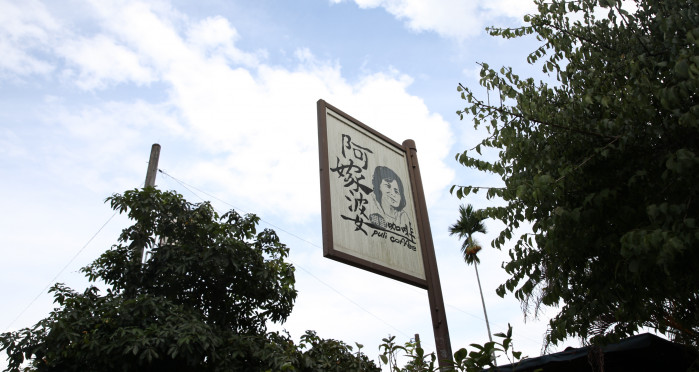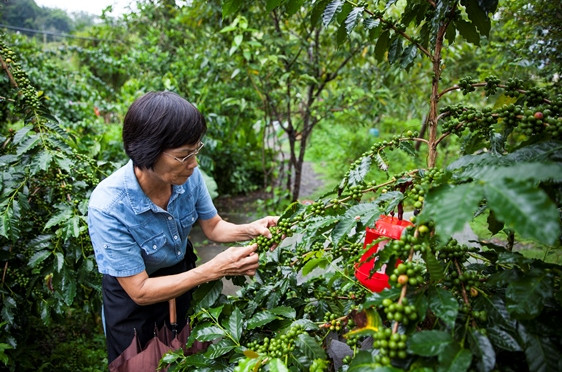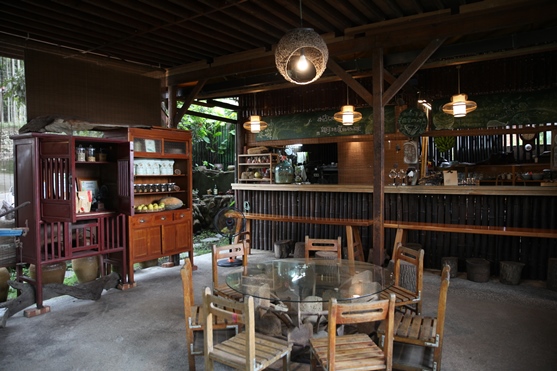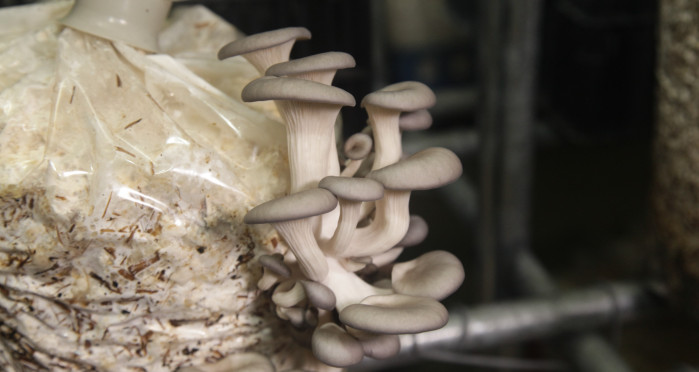Ajapo means grandmother in Hakka. It is the warmth and significance behind the word that inspired Ja Po Café to show the same love for this land.
Nestled in lush greenery, Ja Po Café reflects the spirit of the hard-working Hakka people as well as their wisdom and eco-friendly, natural farming.
Hidden in a typical little village in Puli, Nantou, a wooden board with the words Ja Po Café written across it indicates that we have reached our destination.
As we entered the café, we were greeted with a warm welcome into their flourishing garden.
Having grown up on a farm, “ajapo” Meiyu Lian and family started Ja Po Café, which is not only a reflection of the Lian family’s close relationship but also the café’s commitment to
environmental protection.
In the interview, Meiyu shared with us her obstacle-filled journey to protecting the environment and adopting natural farming.
Sowing eco-friendly seeds
After inheriting the family farm, Meiyu began planting Manchurian wild rice and orchids. Orchids are grown are their beautiful flowers; therefore, natural farming could
put them at risk of being destroyed by pests. So, for orchids, she adopts conventional farming, which in the process exposes her to too much pesticide.
Many life threatening experiences caused Meiyu to rethink the relationship between mankind and nature as well as the effect this piece of land has on her. “In the past,
even if you didn’t use chemical pesticides, crops and plants can still grow healthily. Nature is a strong force of energy. Everything exists for a reason,” Meiyu said. She
realized that natural farming is the best way to keep people, the land, and the ecosystem healthy and growing. So, Meiyu became determined to adopt and promote natural farming.
Farming systems that include the use of pesticide and chemical fertilizer
Meiyu loves coffee, and upon discovering that coffee trees don’t need a lot of pesticides to grow healthily, she started growing coffee trees using the purest and most natural
techniques.
However, natural farming is not an easy road, causing Meiyu to consider giving up half way. “Natural farming exposes crops to pests, so I often had to trim and cut off branches
of coffee trees. Usually after harvesting, the coffee cherries have to be put in water and screened. The coffee cherries that float on top of the water mean that their fruit has been
eaten and need to be discarded. After the screening process, there’s not much left of the remaining healthy ones,” Meiyu recalls with a wry smile.
A gift to you, from the land
When Meiyu gave us a tour around the coffee tree garden, we spotted coffee, bananas, lemons, mulberries, pineapple and even swallowtail butterflies and green pond frogs.
Puli’s Yixin Community is an important habitat for pararasbora moltrechti, an endangered and protected species in Taiwan that lives in clear and clean rivers. Ja Po Café is
located by a river; so it is important to preserve the river to prevent it from being polluted and affecting the fishes’ natural habitat. In order to preserve endemic species of
Taiwan, Meiyu created a diversion dam filled with ginger lilies for the endangered fish to live in. They regularly inspect the restoration site in hopes of conserving the
biodiversity of this land.
Therefore, Meiyu will continue to stick to her beliefs and promote natural farming. There is only one earth. If more people are willing to adopt an eco-friendlier farming
technique, the world will become a better place. Remember, small steps can lead to big changes.





